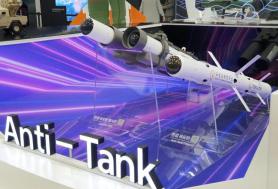
[Courtesy of the Ministry of National Defense]
The Defense Acquisition Program Administration (DAPA) said that it would apply revised standards fairly to the screening of transmissions developed by a South Korean company to dispel concerns about the interpretation of defects. "We will make efforts to ensure that the third mass-production of K2 tanks can be launched within this year," Kim Ki-taek, head of DAPA's division in charge of tanks and armored vehicles, said in a statement.
The revision will serve as a "starting point for the complete localization of K2 tank's power pack," Kim said. A technical advisory committee composed of experts has produced an objective and fair revision, DAPA said, adding the definition of durability defects related to locally-built transmissions has been added, with the method of re-examination specified in detail.
The K2 Black Panther produced by Hyundai Rotem is South Korea's main battle tank that would replace M48 Patton tanks and earlier models of K1 tanks in service. Black Panther combines an auto-loaded 120 mm main gun and advanced composite armor with hard and soft-kill active protection systems. The first batch of Black Panther tanks used a German powerpack due to faulty engines and transmissions produced locally.
Hyundai Rotem signed a contract for the second batch of 106 K2 tanks installed with home-made engines and transmissions, but tanks built with a hybrid powerpack consisting of locally developed engines and German RENK AG's transmission system were delivered in 2019 because the transmission system developed by S&T Dynamics, a defense contractor in South Korea, failed in durability tests.
There was no definition of durability defects in DAPA's previous defense standards. When a failure occurred during the earlier test of durability, DAPA judged locally-built transmissions were inappropriate. However, developers insisted defects were not serious. In revised standards, durability defects were defined as a case in which the basic function of transmissions is lost or the test can no longer be carried out due to serious performance degradation.
DAPA refuted alleged favoritism, saying it did not ease inspection standards to use a home-made power pack. The defense body would recognize faults affecting basic transmission functions as defects.
Copyright ⓒ Aju Press All rights reserved.



